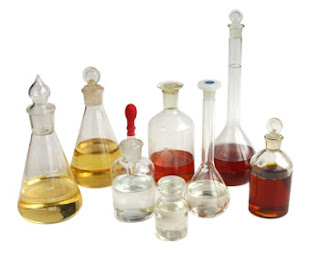Health is wealth. One of my favorite poem states this truthful beautiful lines:
You use your health in search for wealth
But when you have found wealth
You use your wealth in search for health
But you finally found the grave.
If this is true, then we have to have a check and balance scheme, in order to know if the lifestyle we have is really what it meant to be healthy.
Hereunder are few basic suggestions for better health:
- The Food You Eat: It would be well to do less cooking and eat more fruit raw. Never eat fruit or vegetables that are decayed because it will ferment in the stomach and poison the blood. The dried fruits are very helpful in the diet. Apples are one of the best standby storage fruits that you can find. It is best that five hours elapse between meals. Two meals a day are better than three especially for those who obtain relatively little exercise. Late suppers just before bedtime are particularly harmful. If eaten at all, the third meal should be light and taken several hours before bedtime. Good examples: Grains, nuts, vegetables, lentils, beans, fruits. Whole wheat bread is far better than white bread. Sugar clogs the system and is far worse than eating meat.
- The Air we Breathe: In order to have good blood we must breathe well. Lack of fresh air can cause sickness, how important it is that fresh air be supplied to those ill so that they become well. Develop a habit of deep breathing. After eating of before retiring take 18 to 20 deep breaths and take up your arms. When waking up in the morning take deep breathes as much and as many as you can. From time to time repeat it throughout the day to practice expanding our lungs. An insufficient supply of oxygen makes blood move slow. The waster poisonous matter which should be thrown off in the exhalations from the lungs is retained and the blood becomes impure. The stomach liver and brain are affected. The skin becomes irritated, digestion is retarded, the heart depressed, the brain clouded, the thoughts are confused; the whole system becomes in active and is susceptible to disease.
- The sunlight on your Body: Sunlight reduces the danger of open air transmission of diseases. Sunlight lowers blood cholesterol and changes the cholesterol just under the skin to Vitamin D. Exposure to sunshine has an insulin effect in the body, it lowers blood sugar. Sunlight on the body both calms the nerves and increases adrenalin. Sunbath can lower the blood pressure by an average of eight percent. After two hours of sunbath; an average of thirteen percent reduction of human blood cholesterol occurs.
- The Power of Moderation: To obtain excellent health, we must be temperate in all things; self control must be exercised in our communication, in our daily diet, in our work habits, in our recreation, in our travels, in our sleep and in our study. Moderation in the use of even good food is essential.
- The Exercise you Obtain: Exercise provides a powerful increase of oxygen to the body. Ordinarily, a human inhales about 500 cubic inch of air per minute. By walking about 4 to 6 kilometers per hour, draws in about 2500 cubic inch per minute or five times more than that absorbed when sitting down. Rapid walking for 30 minutes, three to four times a week can provide ten years of rejuvenation.
- The Water we Drink: The external application of water is the easiest and most satisfactory way of regulating the circulation of the blood. Warm and neutral baths soothe the nerves and equalize the circulation. It is generally recommended that we must drink 10 to 12 glasses of water a day. The very best times for water drinking are first thing upon arising in the morning and then 30 minutes or so before each meal. One or two glasses of water about half hour before breakfast will help cleanse the stomach and sharpen the appetite.
- The Rest we need: During the rest period, the circulating blood nourishes our body with nutrients and oxygen. Our heart is pumping 100,000 times in 24 hours and lifting 7,000 liters of blood. How long would it last without rest?
The tiny filters in our kidneys operate in shifts: one third work, one third rest, and one third prepare to work. The cells of our liver and pancreas have cycles of work and rest. The fibers in our muscles work and rest in shifts, except when strenuously exercise. Every cell in our body follows this cycle of rest and work, and mostly without our conscious control.
Read More: http://healthmad.com/health/health-alert/




